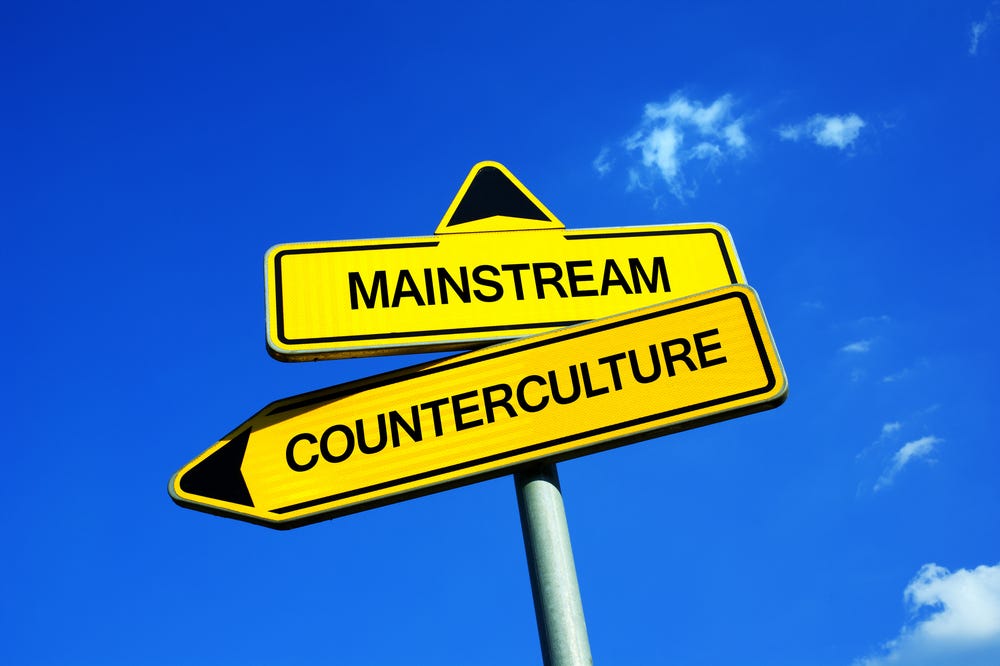E-Pluribus | September 22, 2022
What professors owe their students; conservative counter-counterculture; and political science - no, not *that* kind.
A round-up of the latest and best writing and musings on the rise of illiberalism in the public discourse:
Jonathan Haidt: The Two Fiduciary Duties of Professors
While acknowledging the parallel is not exact, Jonathan Haidt lays out a case at Heterodox Academy that professors have two very crucial responsibilities to their students similar to the fiduciary duty that trustees in other spheres of life owe beneficiaries. In Haidt’s opinion, forcing teachers to sign on to mandatory antiracism statements can cause them to violate that duty.
The word fiduciary comes to us from the Latin fidere, “to trust.” In any large-scale society, people need to rely on others who are not kin, often when they are in a position of vulnerability. Roman, English, and later American law all developed legal designations that enable some people or institutions to hire themselves out as “trustees” who act as “agents” of the person (the “principal”) who invests trust in them. Such agents have fiduciary duties toward their beneficiaries, which means first and foremost absolute loyalty. They must put the needs of the beneficiary first and must never, ever profit at the beneficiary’s expense. They must avoid and eliminate all conflicts of interest, because the lure of such potential benefits can — and often does — corrupt and subvert the fiduciary’s ability to carry out their duty.
American corporate law has interpreted fiduciary duties using the psychology of purity and sanctity. A fiduciary relationship is treated as something different, higher, purer, than a simple contractual relationship. As explained by Supreme Court justice Benjamin Cardozo in 1928:
“A trustee is held to something stricter than the morals of the market place. Not honesty alone, but the punctilio of honor the most sensitive, is then the standard of behavior. As to this there has developed a tradition that is unbending and inveterate. . . . Only thus has the level of conduct for fiduciaries been kept at a level higher than that trodden by the crowd.”
Is the concept of fiduciary duty useful in the academy? To what must professors show such absolute loyalty, such elevated ethics, with no deviations or compromises?
I believe that we have two such duties, related to our two distinct roles as teachers and as scholars. As teachers I believe we have a fiduciary duty to our students’ education. As scholars I believe we have a fiduciary duty to the truth.
Read it all.
N. S. Lyons: A New Counterculture?
While the Left is often the default “counterculture,” N.S. Lyons at City Journal writes that “woke” culture and the illiberal tendencies of today’s Left have opened the door to a counterculture movement that could swing to the right. The atmosphere at many educational institutions is one of suffocating progressivism that may push students to consider what alternatives are not being offered.
In contrast with this oppressive decadence of the mainstream Left, the dialectic of the countercultural Right crackles with irreverence and intellectual possibility. Across a growing ecosystem of YouTube videos, Twitter threads, Substack essays, online book clubs, and three-hour podcasts, exiles from the mainstream are looking to broaden their horizons, not only seeking alternative media but also excitedly discovering Christopher Lasch, debating John Locke, and discoursing on Livy. A hunger for forbidden knowledge and a yearning for genuine answers on political and cultural phenomena cloaked in official gaslighting has produced a legion of autodidacts, unrestrained by elite gatekeepers. And, finding themselves already outside the window of acceptability, and therefore no longer fettered by encrusted ideological orthodoxies or the need for self-censorship, many of these dissidents have no remaining reason to hesitate in pointing out when an establishment emperor has no clothes.
Who counts as a member of the countercultural Right? The universe extends beyond the traditionalist Catholics, Peter Thiel-aligned political operators, and dissident Internet personalities whom Pogue describes. It surely includes a broader array of political subgroups, including more established nationalist conservatives, European-influenced “post-liberal” intellectuals, and newly reactionary “gender critical” feminists now banished from the Left. But it shouldn’t be mistaken for merely a big political tent: its defining feature is not politics but shared alienation and dissent from the hegemony of the left-wing cultural mainstream. The millions of young people introduced to the validity of right-leaning ideas by such heterodox cultural commentators as Joe Rogan, or even awakened to the value of religious tradition by the likes of Jordan Peterson or Jonathan Pageau, form a cultural base that funnels people into a community of vocal dissidents.
[ . . . ]
Critically, the countercultural Right is distinct from the riptide of Trumpian political populism, though voters and influencers may overlap. MAGA populism as an overt political movement has largely been limited to mobilizing those already beyond the fortress walls of the reigning elite class—and it has only consolidated and strengthened the elites’ defensive class consciousness. By contrast, a dissident counterculture is capable of resonating across classes, including within the elite class itself.
It’s for this reason that today’s conservatives shouldn’t underestimate the potential political advantage that an emergent counterculture could present in the long run. Conservatives can sometimes gain political power, but a monolithically united cultural opposition then tends to sabotage them. As the writer Tanner Greer has argued, culture wars are long, generational wars—and as polling tends to indicate, the younger generation currently appears to be overwhelmingly on board with left-wing cultural politics. But a shift in the values of some young Americans is far from impossible.
Read it all here.
Jonathan Rauch: The Danger of Politicizing Science
At Persuasion, Jonathan Rauch warns that too many in the scientific community are being forced to either submit to politicization of their chosen fields or suffer the consequences. If legitimate scientific conclusions must be run through a social and cultural filter before being deemed “safe,” science is no longer truly science.
Every day, researchers, journals, and grant-makers consider the wellbeing of society, including effects on marginalized groups, when they decide what to work on, what to publish, and what to fund; if they did not, science would become sociopathic and reprehensible. I myself once urged a prominent researcher to excise a book chapter that, even if it were empirically sound, would irresponsibly damage race relations and his own reputation.
A dilemma, here, is fundamental. How can science consider social responsibility without politicizing research? This problem is hard. Over the centuries, science has worked out an imperfect but very functional answer: subsidiarity.
Subsidiarity is the notion of reducing centralized control over decision-making by pushing it down to lower levels, such as individuals, local governments, non-commissioned officers, franchise managers, and community groups. Subsidiarity taps local knowledge; it encourages experimentation and retards bureaucratic ossification; it encourages personal initiative; it deters systemic takeover by special interests.
To a great extent, science works on the same principle. Accrediting bodies, scientific societies, and professional organizations set general guidelines. Yet, in implementing those guidelines, they give broad discretion to universities, which give broad discretion to their faculties, which give broad discretion to individual researchers. For the most part, we trust trained professionals to make socially responsible research decisions. For the most part, they do. Questions about social harm and social justice are hashed out in conversations and debates among members of the research community, not settled peremptorily by a handful of editors.
In this disaggregated, decentralized system, journals play the essential role of middlemen. They assess research’s importance, vet its quality, and, on approval, usher it into the marketplace of ideas. Of course, they can’t be perfectly apolitical, because they’re human; but, traditionally, they aspire to be ideologically neutral so that the political inclinations of editors don’t supersede the scientific expertise of researchers. We want them to act as quality controls, not political checkpoints.
Read the whole thing.
Around Twitter
Some excerpts from Graeme Wood’s latest Atlantic article via Heterodox Academy:
Andrew Sullivan discovers the latest gender identity:
Excerpt from the International Journal of Transgender Health article to which Sullivan links:
And finally via J.K. Rowling, it seems “LGBT” is increasingly becoming “LGB vs. T”:












